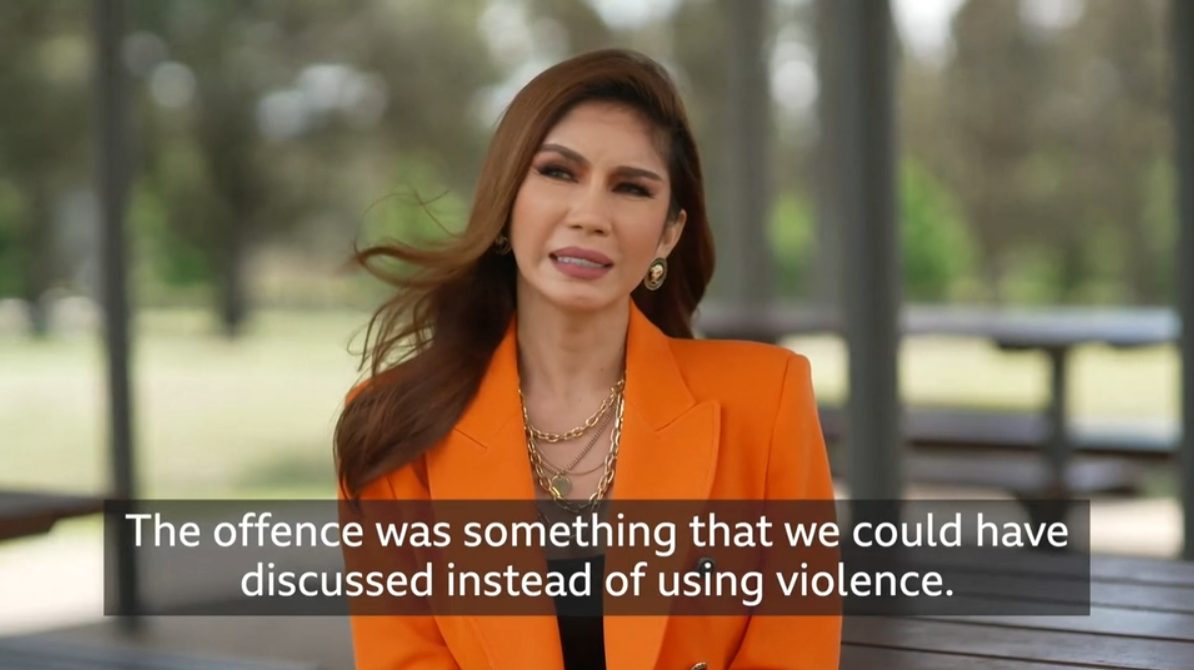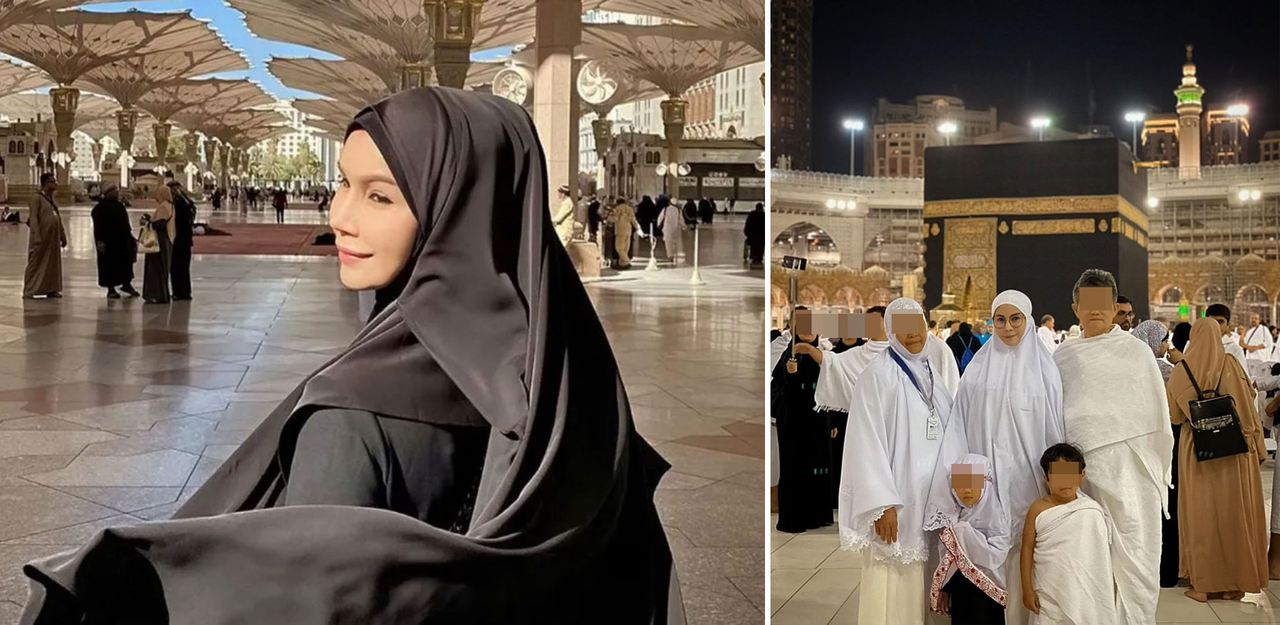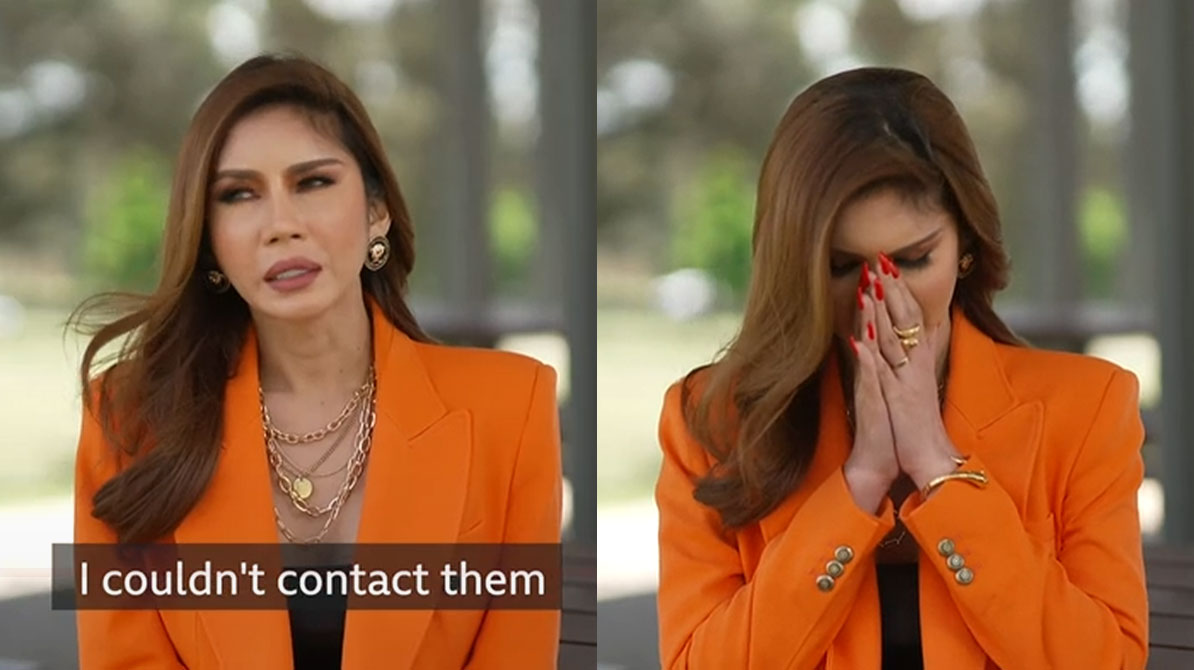"I Had To Run Away" – Sajat Shares With BBC The Reality She Faced As A Transperson In MY
While she misses her children, Nur Sajat has been encouraged to share her experience as a transwoman with the world. She said she will appear on The Ellen DeGeneres Show in January next year.
Subscribe to our Telegram channel for our latest stories and breaking news.
Editor's note: The story has been updated to fix a date that was inaccurately reported.
Transgender cosmetics entrepreneur Nur Sajat revealed that she had to flee Malaysia after allegedly being assaulted by officers from the Selangor Islamic Religious Department (JAIS) during her arrest
Speaking to BBC for a report published last Friday, 19 November, the 36-year-old said as a transwoman and a Muslim, she has the right to express her religion in her own way.
She attributed the restriction to freely express herself, as well as JAIS' unnecessarily harsh treatment towards her, as reasons why she left Malaysia and may never return.
"I had to run away. I was treated harshly (in custody). I was hit, pushed, handcuffed, all in front of my parents and family. I felt ashamed and sad. I gave them my cooperation, but they still did that to me," she said in a video interview.
"The offence was something that we could have discussed instead of using violence. Maybe it was because they see me as a transwoman, so they did not care if I was held, beaten, stamped on. We transwomen have feelings too. We deserve to live our lives like normal people."
The video interview included footage of Sajat crying while being handcuffed and screaming during the arrest.
Sajat grabbed national attention in early September after Thai immigration made an unusual arrest against her while she was holding a United Nations High Commissioner for Refugees (UNHCR) card in Bangkok.
The Malaysian authorities immediately sought her extradition on charges of insulting Islam because of her act of cross-dressing at a religious event.
During her time in Thailand, she sought asylum in Australia and she was eventually granted the status some time around mid-October.
Sajat believes that her strong social media presence, appearance, and career are the reasons why she became local authorities' "target"
"Even before social media existed, our transgender community has always been oppressed in Malaysia," she related.
"But when social media came and I became a famous person, maybe because of my career and appearance, it makes them think I can be a target."
She also addressed the controversy she caused when she dressed as a woman while performing the Islamic pilgrimage in Mecca and attending majlis kesyukuran (thanksgiving events), saying that they were done out of her respect for the religion.
"But I could not do it in the way (some people) want. I have to be myself," she lamented.
"Because I didn't ask to be born this way. No one wants to be born as a transwoman."
Sajat drew backlash for wearing women's prayer clothing while performing the Islamic pilgrimage in Mecca.
Image via Beautiful Nara"I don't think I'll ever go back to my home country," said the entrepreneur, citing that Malaysian authorities will not let transpeople live peacefully
"To me, when I am here (in Australia), I am free to be myself as a transwoman."
Earlier, she also appeared teary-eyed when she talked about how her escape had separated her from her adopted children.
Sajat said after leaving Malaysia, she could not contact and speak with her children for eight to nine months.
BBC reported that while she misses her children badly, she has been encouraged by the opportunity to share her experience with other transpeople in Australia.
In a TikTok uploaded yesterday, 23 November, Sajat said she will be visiting the US in January next year for The Ellen DeGeneres Show and Singapore in the following month.
"My schedule is packed. After (the interviews), I will fly. When I am great at speaking English, I will fly higher and higher and higher," she said with great enthusiasm.
In a Sinar Harian report on 22 September, JAIS director Datuk Mohd Shahzihan Ahmad advised Sajat to return to Malaysia to face the court, as "no one is threatening her, especially JAIS staff".
He urged her not to make the matter an international issue, adding that he hoped that the case would not be used as propaganda material by involving the Australian immigration department.


